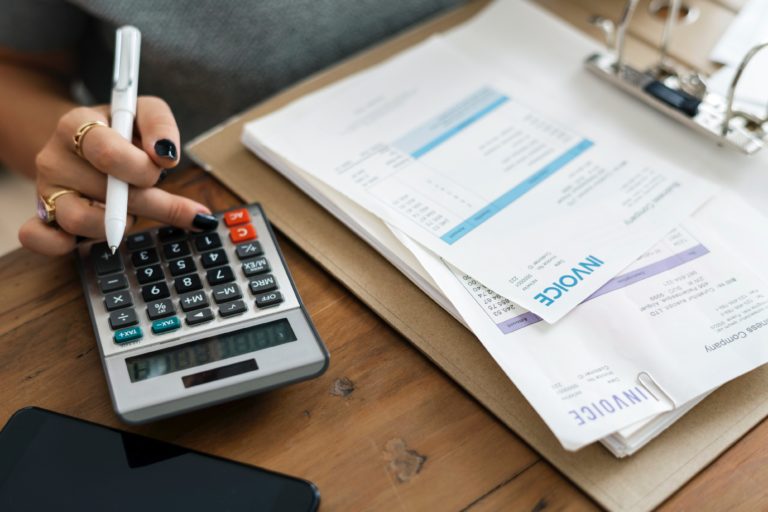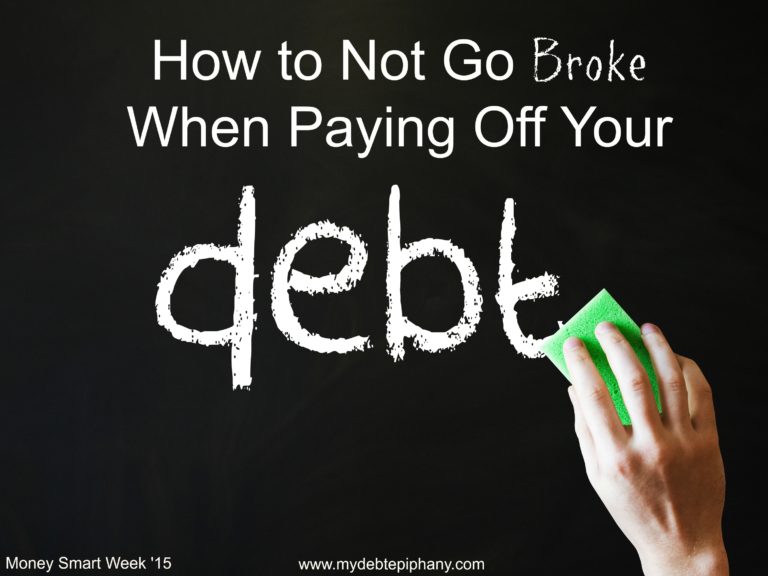How to Start Making Progress When You’re Stuck in Debt
Thank you National Debt Relief for sponsoring this post! All thoughts and opinions are my own.
Overwhelmed by your debt? Behind on bills or only making the minimum payments on your credit cards and loans? Don’t let that feeling carry on throughout the year.
Being in debt can make you feel uneasy and cost you more money the longer it takes you to pay off your accounts. When my husband and I got married, we looked at his credit card debt and immediately felt overwhelmed. He owed about $4,000 that we’d put on hold while planning the wedding. While spending thousands on our wedding, it was hard to make minimum payments on the credit card debt and even then, interest ate up a chunk of the payment.
We used some wedding gift money and started living on one person’s income to pay off the cards in just 4 months.
While I know everyone doesn’t have the options we had to get rid of debt, you can still pay off more debt at a faster rate as well if you set a clear goal and implement all the right strategies.
Table of Contents
List Out Debts By Interest Rate and Overall Cost
It’s easy to want to avoid your debt and stash your bills away so you’ll forget about them. Sweeping everything under the rug never does any good because the core problem will still exist and probably just grow.
In order to start paying your debt off at a faster rate and without too much pain and sacrifice is to find out exactly where you stand. Start by listing out all your debts including the current amount, minimum monthly payment, and interest.
Categorize them by deciding which account you want to pay off first, and which account is most difficult for you to pay at this time and why.
Also, consider how much the debt is costing you each month and year not just due to interest charges, but other expenses as well. For example, my car loan was costing me extra money when it came to my car insurance as well as the high interest rate.
Establish an Emergency Fund
It’s important to make sure you have some type of emergency fund before deciding to tackle your debt. Why? Unexpected expenses will continue to pop up and if you don’t have any savings to fall back on, you will just dig yourself deeper into debt.
Imagine paying off some credit card debt and then having to use your credit card to cover an emergency expense the next week. It pretty much defeats the purpose and causes you to work even harder to make some progress with debt payoff.
This isn’t to say that you should have a $10,000 emergency fund while you’re deep in debt because that wouldn’t make much sense, but you can try to set aside a mini rainy day fund of $1,000 or even the equivalent of 1 of your bi-weekly paychecks.
Related: Why Do You Need a Full Emergency Fund?
How to Save Your First $1,000 This Year
Downsize (Even Temporarily)
You don’t have to be sentenced to a lifetime in debt. It can be helpful to focus on downsizing certain aspects of your life if even temporarily so you can get a handle on your situation and pay off more debt in less time.
Take a look at your spending from previous months and determine if there’s anything you really don’t need or could go without. See if you can sell any of your unwanted items or high-priced possessions like electronics, smartphones, jewelry, clothes, etc. You also might consider downsizing your car or home if you really want to cut down on your spending.
When I first started focusing on aggressive debt payoff, I decided to move to a more affordable apartment and saved $400/month or $4,800 for the year. Moving may not be an option for you right now but there are still plenty of ways to downsize your lifestyle within your comfort zone.
Related: 50 Everyday Expenses You Need to Stop Spending Money On
Consider Using a Debt Relief Service
Knee deep in debt and can’t really afford to build an emergency fund or even make minimum monthly payments? You may want to consider using a debt relief service like National Debt Relief. A legitimate debt relief service like National Debt Relief can be a solid alternative to bankruptcy, credit counseling, and debt consolidation.
This company specializes in helping consumers get relief from credit card debt, medical bills, and unsecured loans through debt settlement.
When you work with a debt settlement company, they basically negotiate with your creditors for you in order to get them to agree to a reasonable settlement where you make a payment for a portion of your debts.
This could end up being much lower than the amount you’d have to pay on your own. Plus, in turn, the creditor agrees to forgive the rest of the debts.
Why would creditors agree to a debt settlement? If you’re truly struggling to make payments on your debt, the company would much rather receive a payment (even if it’s lower) instead of no payment at all and have to send you.
National Debt Relief is one of the largest and most reputable debt settlement companies. They have an A+ rating with the BBB and top ratings with other leading consumer credit websites.
One of the benefits of working with them is that they provide you with one low monthly payment for your debt and no upfront fees. To participate in this program, you have to agree to cut out credit card spending, however, National Debt Relief only charges a fee once a debt has been settled. (You’ll want to cut out credit card usage anyway if your main focus is becoming debt free.)
The only notable downside to debt settlement is that it may negatively affect your credit temporarily but not as severe as a bankruptcy would (will be different for each person). If you are already behind on your bills, your credit score may already be lower to start with.
Give Yourself an Income Boost
Lack of disposable income is one of the biggest factors that contribute to accumulating and staying in debt. In order to commit to accelerated debt payoff, you need to increase your income right along with lowering your expenses and minimum debt payments.
Are you in the market for a new job or a promotion? This could allow you to increase your income while putting in the same amount of hours. You can also try giving yourself a raise by side hustling which is my absolute favorite way to make extra money when your availability is limited and you need flexible work.
During debt payoff, I started writing articles online for $30 each. It wasn’t a lot of money but if added up once I found consistent work and started making an extra $500 per month.
Ask yourself what your interests and availability needs are along with how much you’d like to earn in order to narrow down your extra income options. Then commit to it by taking action, setting goals, and tracking your progress.
Related: 80+ Ways to Make Extra Money on the Side
6 Ways to Earn an Extra $500/month
10 High-Paying Work From Home Part-Time Jobs
What are your debt repayment goals for the year and what’s your strategy to start making progress?
Stop Worrying About Money and Regain Control

Join 5,000+ others to get access to free printables to help you manage your monthly bills, reduce expenses, pay off debt, and more. Receive just two emails per month with exclusive content to help you on your journey.





